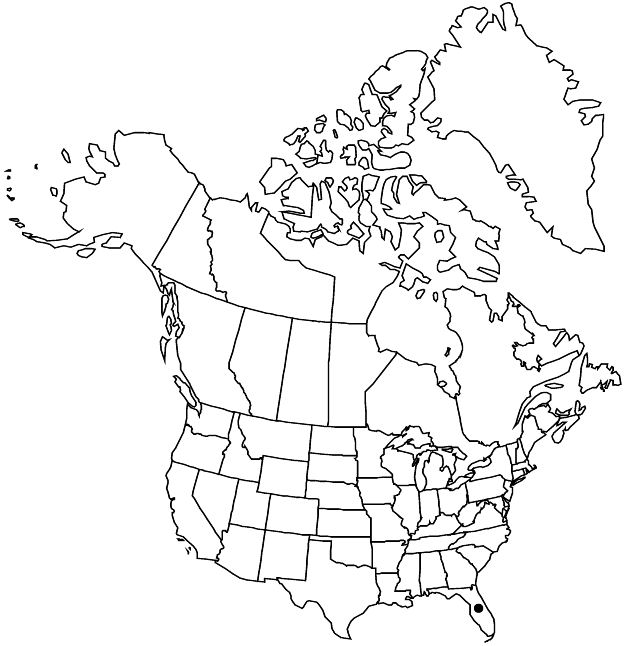Ziziphus celata
Rhodora 86: 382, fig. 1. 1984.
Shrubs or small trees, 1–2 m; secondary branches gray, not pruinose, glabrous, thorn-tipped, axillary thorns solitary or paired and unequal, with 1–3 nodes, bearing several short shoots and often small tertiary thorns; stipular spines absent. Leaves deciduous, alternate, sometimes fascicled; blade dark green, oblong-elliptic to elliptic-ovate or elliptic-obovate, 0.5–1 cm, coriaceous, base cuneate to slightly attenuate, margins entire, apex rounded to shallowly emarginate, surfaces glabrous; 1-veined. Inflorescences fascicles on short shoots, 2–4-flowered, or flowers solitary. Flowers: hypanthium and sepals greenish; petals white. Drupes yellow, orange, or brownish, globose to ovoid or oblong, 10 mm.
Phenology: Flowering Mar–Apr.
Habitat: White sand, pastures on former sand hills, Turkey oak and oak-hickory scrub.
Elevation: 100 m.
Discussion
Ziziphus celata is endemic to the Lake Wales Ridge in Highlands and Polk counties. A molecular phylogenetic study by M. B. Islam and R. P. Guralnick (2015) found that Z. celata and Z. parryi are sister species and most closely related to the genus Condalia, and on that basis they treated both species within Condalia. However, their Ziziphus-like morphology is conspicuously out of place within Condalia.
Ziziphus celata is ranked as G1 by NatureServe and federally listed as endangered; it is also in the Center for Plant Conservation's National Collection of Endangered Plants.
Selected References
None.
